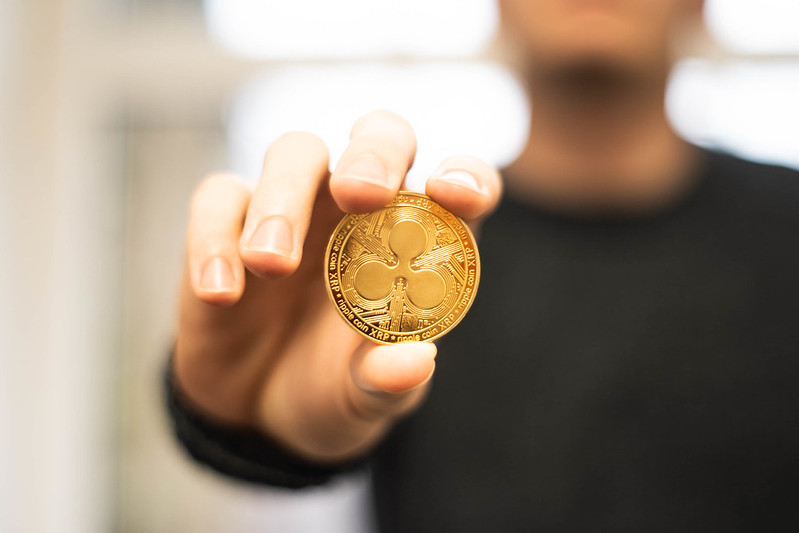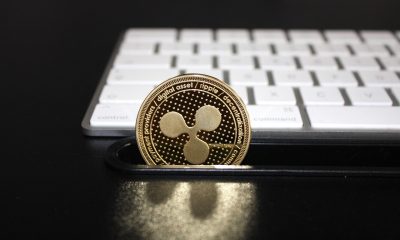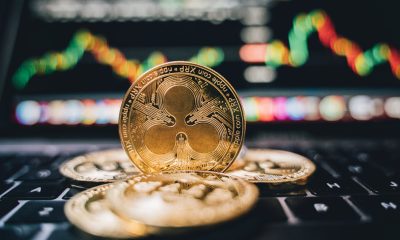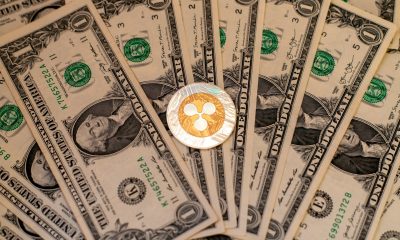Crypto
Ripple Sells XRP on a Large Scale – Chief Technology Officer Attempts to Explain
Ripple has sold over $500 million in XRP in 2024, sparking investor concerns about the impact on XRP’s price. Despite gains in other cryptocurrencies, XRP has fallen from $0.60 to $0.53. Ripple holds large XRP reserves and releases 1 billion XRP monthly. CTO David Schwartz defends sales, but investors suggest alternatives like burning or airdropping XRP.

Ripple has already sold XRP for more than $500 million in 2024. Critical investors see this as damaging to the price development of XRP. Ripple Chief Technology Officer David Schwartz is trying to calm tempers.
This year’s upward trends and price gains in Bitcoin, Ethereum and other important cryptocurrencies are bypassing XRP
On the contrary: At the turn of the year, XRP was still trading at a good $0.60, and is currently trading at $0.53. Analysts point to Ripple’s handling of its XRP reserves as a possible cause. The crypto company has been following this issue for years.
One thing is clear: Ripple still has a good 40 billion XRP stored in a kind of escrow account and around 4.8 billion in an account for short-term liquidity. This is offset by 55 billion XRP circulating on the free markets. Every month, 1 billion XRP is automatically released from the escrow account for Ripple. With this construct, Ripple wants to secure its financing and at the same time prevent itself from influencing the price discovery of XRP. In 2022 and 2023, Ripple even temporarily bought back XRP.
But this year, the company has started monetizing XRP again. Finbold calculates that from January to April 2024, the company sold a good 240 million XRP per month, totaling more than 500 million US dollars. Even when the crypto markets temporarily experienced a price crash in mid-April because the conflict between Iran and Israel escalated, Ripple simultaneously threw XRP onto the market. Critical investors see this behavior as constant dumping, i.e. price pressure on XRP, which Ripple itself is causing.
Chief Technology Officer David Schwartz has now spoken out on X. “Why is Ripple the biggest seller of XRP?” he was asked there last week. Schwartz replied: “Because Ripple has the most XRP and (…) the only alternative to selling would be to hold on to most XRP indefinitely.” But the community is not very convinced of this. It offers suggestions: Ripple could gradually destroy (“burn”) its XRP, distribute it as an airdrop to long-term investors or simply leave it in reserves. In general, people would like to know when and how Ripple plans to stand on its own two feet financially and not be dependent on the XRP allocations. Schwartz remains silent on this.
Conclusion: Is Ripple damaging the price development of XRP?
The US Securities and Exchange Commission (SEC) believes that Ripple is financially dependent on XRP sales and is bringing this into the ongoing court proceedings. This concerns institutional buyers and direct deals. However, the XRP price curve also usually shows weaknesses when Ripple sells. The amounts involved are responsible for less than 1 percent of the volume on the XRP markets.
But a look at the historical price development of XRP suggests that Ripple is harming investors with its strategy. Because if the company is already reporting significant financial needs to drive the expansion of the ecosystem, success should also follow. Instead, however, Ripple now wants to launch its own stablecoin, which justifiably raises the question: what will XRP be good for in the future? Anyone who invests in XRP as a private investor should definitely familiarize themselves with Ripple’s monetary policy and strategic direction.
__
(Featured image by FXTM Thailand CC BY 2.0 via Flickr)
DISCLAIMER: This article was written by a third party contributor and does not reflect the opinion of Born2Invest, its management, staff or its associates. Please review our disclaimer for more information.
This article may include forward-looking statements. These forward-looking statements generally are identified by the words “believe,” “project,” “estimate,” “become,” “plan,” “will,” and similar expressions. These forward-looking statements involve known and unknown risks as well as uncertainties, including those discussed in the following cautionary statements and elsewhere in this article and on this site. Although the Company may believe that its expectations are based on reasonable assumptions, the actual results that the Company may achieve may differ materially from any forward-looking statements, which reflect the opinions of the management of the Company only as of the date hereof. Additionally, please make sure to read these important disclosures.
First published in BLOCK-BUILDERS.DE. A third-party contributor translated and adapted the article from the original. In case of discrepancy, the original will prevail.
Although we made reasonable efforts to provide accurate translations, some parts may be incorrect. Born2Invest assumes no responsibility for errors, omissions or ambiguities in the translations provided on this website. Any person or entity relying on translated content does so at their own risk. Born2Invest is not responsible for losses caused by such reliance on the accuracy or reliability of translated information. If you wish to report an error or inaccuracy in the translation, we encourage you to contact us

-

 Crypto7 days ago
Crypto7 days agoEthereum Pushes AI Integration With ERC-8004 and Vision for Autonomous Agents
-

 Biotech2 weeks ago
Biotech2 weeks agoByBug Turns Insect Larvae into Low-Cost Biofactories for Animal Health
-

 Business2 days ago
Business2 days agoDow Jones Near Record Highs Amid Bullish Momentum and Bearish Long-Term Fears
-

 Business1 week ago
Business1 week agoDow Jones Breaks 50,000 as Bull Market Surges Amid Caution and Volatility

























